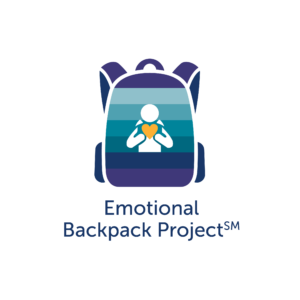Professional Development for Schools & Youth Serving Organizations
Email questions to: csbhinfo@mhahouston.org
EMOTIONAL BACKPACK
 An all-inclusive, year-long, train the trainer program; 2 individuals from a campus are trained to become Emotional Backpack Facilitators. Facilitators teach the modules to their home campus, equipping staff to better support the mental health needs of students and families.
An all-inclusive, year-long, train the trainer program; 2 individuals from a campus are trained to become Emotional Backpack Facilitators. Facilitators teach the modules to their home campus, equipping staff to better support the mental health needs of students and families.
Some helpful information regarding the program:
- Facilitators will be trained on all five modules by Center Professional Development staff
- Modules are 90 minutes in length and include a variety of activities and videos to reflect different learning styles
Blank Close Accordion
Children's Mental Health
90 minute module that defines mental health, discusses signs and symptoms of a mental health disorder, and how to hold empathetic conversations.
Trauma Informed Environments
90 minute module that examines how trauma affects brain development, grief and loss, and how to create a trauma-informed environment.
Youth Suicide Prevention
90 minute module about the myths and facts of suicide and how to intervene with youth struggling with suicidal ideation.
Self-care for Educators
90 minute module that covers employee burn out, how to set achievable SMART goals, and how to develop a self-care plan.
Trauma Informed Practitioners
90 minute module created as a follow-up to Trauma Informed Environments. This module equips individuals with the skills needed to communicate and respond in a trauma-informed manner and how to support youth who have been exposed to trauma or chronic stress.
- Facilitators will receive access to all training materials following the completion of the train the trainer sessions
- Each facilitator will receive a continuing education credit certificate (upon request)
- Materials are updated on an annual basis to ensure they are reflective of current mental and behavioral health information

new training offerings
Blank Close Accordion
Administrators as Champions for School Mental Health
Supporting Your Child's Mental Health Needs
Gender Diverse Youth & Mental Health
Mental Health & Youth with Disabilities
Trauma-Informed Series
Blank Close Accordion
Trauma: Basics
Provides a foundational understanding of trauma.
Trauma: Universal
Trauma: Specialized or Specific Populations

Explore More of the Center for School Behavioral Health
Collaborative
Youth Art Showcase
Professional Development
Newsletter Archive

